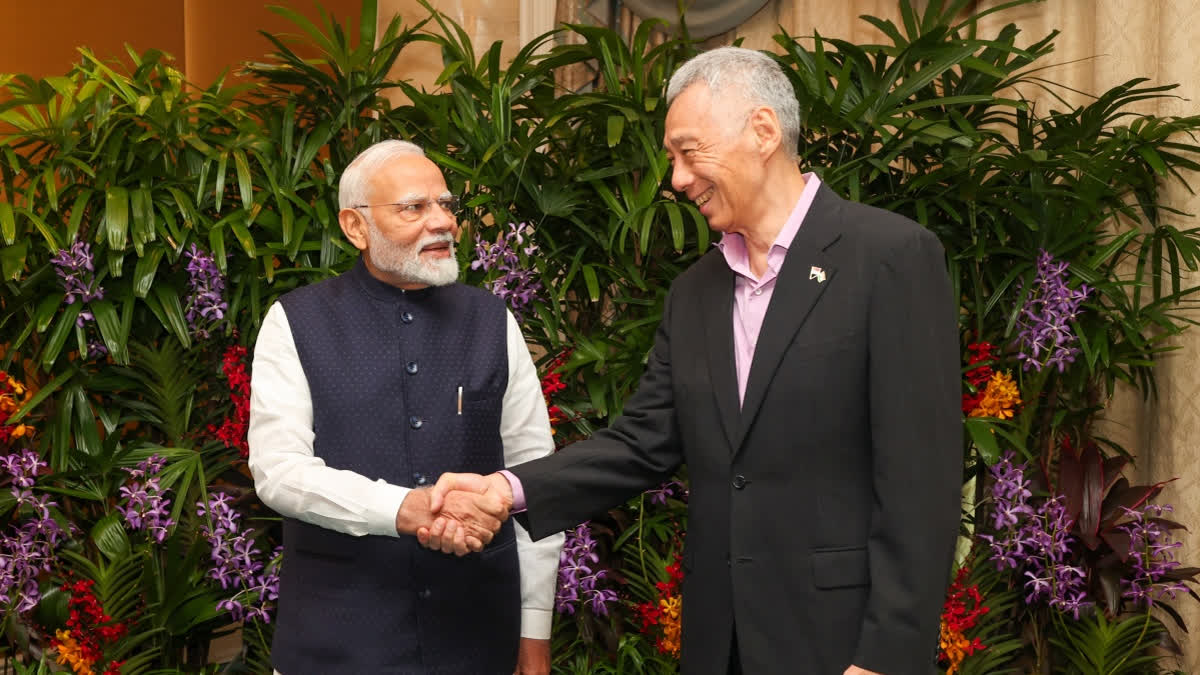Singapore: India is growing and Singapore sees many opportunities to expand bilateral cooperation with South Asia's fastest-growing economy, senior minister Lee Hsien Loong has said.
"India is growing, and on the move," Lee, who served as prime minister for 20 years, told the Indian business community on Saturday.
"Singapore has a good brand name in India and we have enjoyed very good ties with successive Indian governments," The Straits Times quoted Lee as saying.
Singapore sees many opportunities to expand cooperation on fronts such as bilateral trade, skills training and fintech, alongside exploring fields such as health care as well as digital and green economies, he added.
He also urged the Indian business community to make the most of these advantages.
Lee highlighted the importance of the Comprehensive Economic Cooperation Agreement (CECA), a nearly two-decade-old Singapore-India free trade agreement that has helped foster extensive trade, investment and travel links between the two countries.
"Many Indian companies have set up in Singapore to serve the region while many local Indian businesses have successfully forayed into the Indian market," he said.
He also pointed out that Singapore relied heavily on immigrants and foreign workers to top up its population base and talent pool.
The inflow and integration of new arrivals must, therefore, be managed with the "utmost sensitivity and caution, to ensure the flows are balanced and sustainable", noted Lee (72).
Locals have raised the issue of a growing number of migrant and foreign workers as well as investors and professionals -- including those from India -- in some cases, citing their social ethics. These "new arrivals" are, however, rated as important for driving economic activities in the prosperous city state, diplomatic observers noted.
"But we must also stand firmly against nativism and xenophobia, and welcome the new arrivals to become part of our extended family," Lee said in a speech at a dinner hosted by the Singapore Indian Development Association (Sinda) and 14 other Indian community organisations.
He said Singaporeans should help these new arrivals adapt progressively to the way things were done in the city state, and to the country's social norms and ethos.
It is an ongoing process that takes time but gradually they will integrate into the local community, he added.
"This is how earlier generations became Indian Singaporeans, and it will happen with this generation, and with new arrivals from other groups and places too," the newspaper quoted the senior Singapore ruling party leader as saying.
This is how the Singaporean identity can be sustained and enriched, and the way to build a cohesive and inclusive society that is "connected to the world, strengthened and not divided by our diversity", he stressed.
Lee addressed around 2,000 guests, including Cabinet ministers, members of Parliament, Indian leaders and volunteers at the dinner.
He also applauded the Indian community's progress with the nation, and noted their considerable contributions in many fields.
While the community may be small, it has played a full role in Singaporean society and worked with other communities to contribute in many ways, he added.
This shows the success of Singapore's multiracial model, which has created full and equal opportunities, a harmonious society and better lives for all, including the minority communities, Lee said.
He acknowledged the migrants from many parts of the Indian subcontinent who came to modern Singapore in its earliest days in search of a better future and formed part of the Singapore story.
"These different groups sank roots here, formed bonds with one another, and out of this kaleidoscope of backgrounds, there gradually emerged a distinctive and proud Singaporean Indian community," he said.
Lee noted that the Singaporean Indian community was flourishing, benefiting from the efforts of self-help community organisations.
The community organisations can do good work because of the strong support of many selfless volunteers, said Lee, noting that their ranks included those who had moved to Singapore recently.
Regardless, they should be applauded for willingly stepping up to volunteer, said Lee, noting that this new crop came from a wider range of backgrounds and places than earlier generations of Indian immigrants.
They add vibrancy and dynamism to Singapore's Indian culture and are thus contributing to the community and the country, he added.
The strength of the Indian community here has enabled it to reach out confidently to the rest of the world, Lee said, noting that Singapore had developed a healthy and extensive relationship with India and other countries in the subcontinent.
People of Indian origin account for about nine per cent of the six million population of Singapore.
